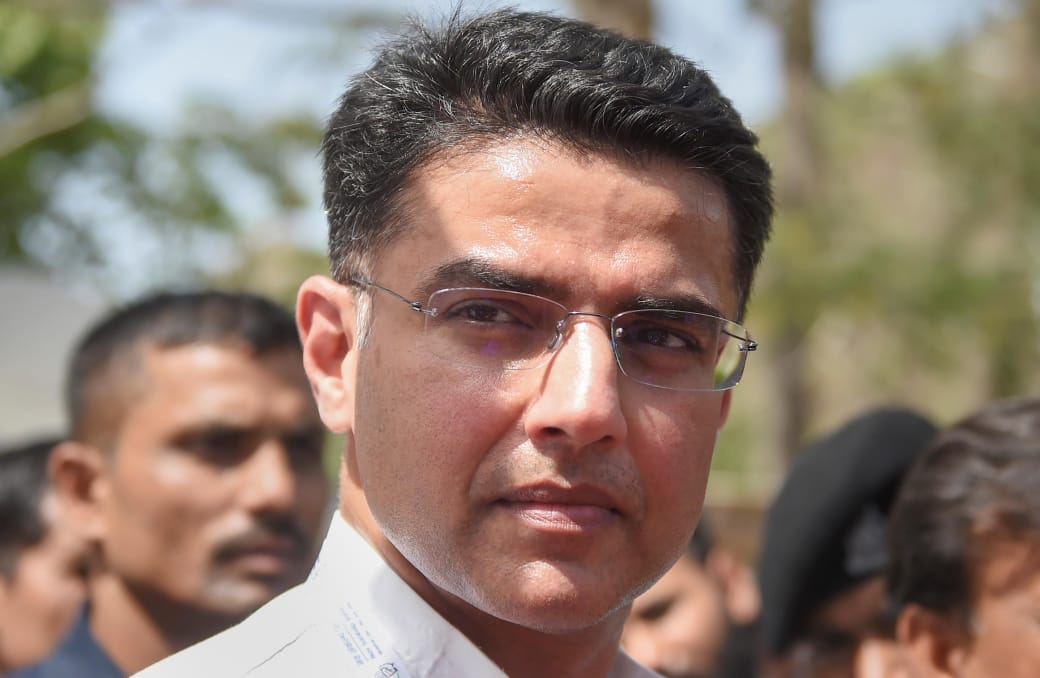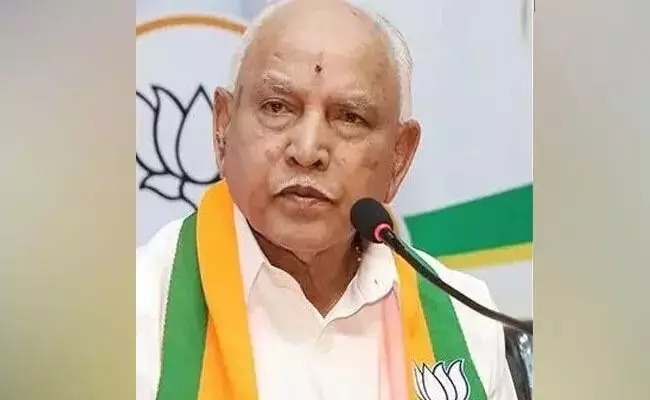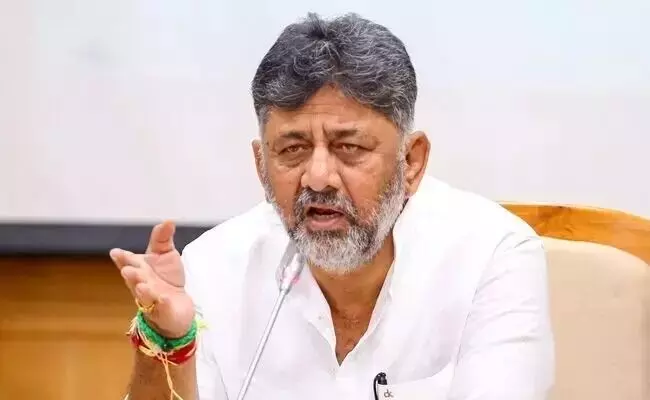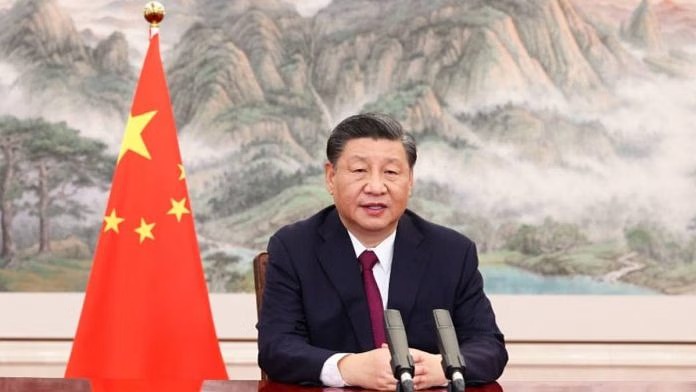New Delhi (PTI): In a scathing attack on the government over the imposition of tariffs by the US, Congress general secretary Sachin Pilot on Sunday said that Prime Minister Narendra Modi should have worked out a constructive solution during his last America visit rather than just indulging in "photo ops" and exchanging gifts.
He said that at a time the world is responding to the imposition of reciprocal tariffs by the US, the Indian government is merely buying time and leaving everything to fate.
In an interview to PTI, the former minister for Corporate Affairs said the Indian government is accepting what has been given out and has not even offered a response.
"I would imagine, when the PM was in Washington (in February) and met the president of the US, instead of just photo ops and exchanging gifts, something more constructive should have come out of it," Pilot said.
"If our relations are as strong as the two leaders claim, then we would not have been slapped with these steep tariffs. Clearly our exports will be severely hit, manufacturing was in any way on a downside, MSMEs are in for a shock...The economy will face severe stress due to resulting layoffs and job losses but unfortunately we have not had an adequate response or even an indication of how to navigate this situation." he said.
The government was caught napping and it seems under US pressure to sacrifice Indian interests, he alleged.
Pilot pointed out that many European countries have responded strongly and in fact, China will legally take action against the US in the WTO.
While European countries have spoken of similar tariffs, Canada and Mexico have also indicated reciprocal imposition of higher counter tariffs but "we have not responded yet", Pilot said.
"So one does not know what the government intends to do but one thing is clear that these trade wars are going to pose a huge problem whether it is inflation, manufacturing, productivity, transfer of technology- all will be impacted but despite Parliament being in session, we have not seen an adequate response or assurance from the Indian government on how it will protect indian interests. And this silence is adding to the uncertainty," the Congress leader said.
Calling for a proper strategy to deal with the issue, Pilot said if the tariff proposal was in the pipeline, the Indian government should have communicated and dealt with it in a much more strategic manner than it has.
"We are just basically accepting what has been given out and while the whole world is reacting, we are yet to respond ," he said.
Noting that India is now a more interconnected economy around the world, he said the US move will have an impact on India especially at a time when there is "record unemployment" since Independence.
"Our national debt burden has increased exponentially and while our economy is growing the rich-poor divide is at historic levels. A large portion of our labour force is engaged in trade and export related manufacturing and millions of those jobs are facing uncertainty, and yet the government has not come out with any creative ideas on how to tackle the consequences of these tariff wars," Pilot said.
He said it was difficult to predict what exactly the outcomes of the US imposed tariffs would be but asserted that the Indian government should have been better prepared knowing this was coming.
India being a strategic partner of the US has not yielded any benefits at least as far as the current economic scenario is concerned, Pilot added.
The US has announced 27 per cent reciprocal tariffs on India, saying New Delhi imposes high import duties on American goods, as the Donald Trump administration aims to reduce the country's trade deficit and boost manufacturing.
The move is expected to impact India's exports to the US.
President Trump, in a measure to counter higher duties on American products imposed globally, announced reciprocal tariffs on about 60 countries.
On the recently passed Waqf (Amendment) Bill, which has now become an Act, Pilot said the Congress made its stand very clear in Parliament and the Opposition was united in opposing it.
"The moot question - for what reason was this bill was brought into Parliament? The intention behind bringing this bill is not what is claimed.If there were some isolated incidents of non compliances or discrepancies that needed to be corrected, that could have been corrected.
"But the way the bill was brought, in such a rush, despite huge opposition from all corners, including political parties, stakeholders, community leaders, the intent was to have another debate in this country about Hindus and Muslims and Mandir and Masjid, to divide the country and polarise the narrative on religious lines," Pilot said.
"It's an old trick for the BJP to avoid accepting and resolving real issues like Manipur, unemployment, food price inflation, Chinese incursions into our territory and divert the attention of the country toward highly contentious and polarising issues just to suit their political and electoral agenda," he said.
President Droupadi Murmu on Saturday gave her assent to the Waqf (Amendment) Bill, 2025, which was passed by Parliament last week after heated debates in both Houses.
Let the Truth be known. If you read VB and like VB, please be a VB Supporter and Help us deliver the Truth to one and all.
New Delhi(PTI): The Supreme Court has reserved its verdict on a plea of senior BJP leader and former Karnataka chief minister B S Yediyurappa against an order reviving a corruption case against him.
The Karnataka High Court, on January 5, 2021, allowed a plea of complainant A Alam Pasha, who hails from Bengaluru, and revived his complaint.
Pasha alleged corruption and criminal conspiracy against Yediyurappa and former Industries minister Murugesh R Nirani and Shivaswamy KS, former managing director of Karnataka Udyog Mitra.
The high court ruled the absence of prior sanction for prosecution—leading to the quashing of an earlier complaint—did not bar the filing of a fresh complaint once the accused had demitted office.
It, however, did not allow criminal prosecution of V P Baligar, a retired IAS officer and former principal secretary of the state government, in the corruption case.
On April 4, a bench comprising Justices J B Pardiwala and Manoj Misra concluded the hearings and framed several key legal questions for its adjudication including whether after a judicial magistrate has ordered probe under Section 156(3) of Code of Criminal Procedure (CrPC), would a prior sanction of the appropriate government authorities be still required under Section 17A of the Prevention of Corruption (PC) Act.
Section 156 (3) of the CrPC permits a judicial magistrate to order a police investigation into a complaint and it may include order for a preliminary inquiry or registration of an FIR.
Section 17A of the PC Act says, “No police officer shall conduct any enquiry or inquiry or investigation into any offence alleged to have been committed by a public servant under this Act, where the alleged offence is relatable to any recommendation made or decision taken by such public servant in discharge of his official functions or duties, without the previous approval...”
The top court framed seven crucial legal questions, primarily focusing on the interplay between various provisions of the PC Act and the CrPC on the issue of prior sanction to prosecute a public servant and power of the judicial magistrate to entertain a private complaint and order probe and an FIR.
“What are the relevant considerations as contemplated by Section 17A of the Prevention of Corruption Act, 1988 which the appropriate authority or government is expected to look into before the grant of approval for initiation of any enquiry, inquiry, or investigation by the police?” read the first question the bench framed.
Whether the considerations which weigh with the appropriate authority or government while granting approval under Section 17A of the PC Act are fundamentally so different from the one that a magistrate is ordinarily expected to apply while passing an order under Section 156(3) of the CrPC, read the second issue.
“In other words, whether the considerations under Section 17A of the PC Act are of such a nature that they are necessarily beyond the ambit or scope of consideration by a Magistrate while directing an investigation under Section 156(3) of the CrPC,” the bench said.
The top court asked if it could be said that once a magistrate has applied his mind under Section 156(3) of the CrPC, the requirement of a prior approval under Section 17A of the PC Act is meaningless, redundant and no longer necessary.
“Could it be said that a police officer, despite a direction under Section 156(3) by a Magistrate, would remain inhibited from conducting any enquiry, inquiry, or investigation without prior approval as required by Section 17A,” it added.
Whether a magistrate could proceed with inquiry under Sections 200 (examination of private complainant) and 202 (postponement of a criminal case) of the CrPC without prior sanction, and whether such actions are limited only to the pre-cognizance stage, read another question.
The top court asked the counsel of the senior BJP leader to file the written submissions within two weeks, along with relevant case laws addressing not just the framed questions, but any additional issues that may arise.
Pasha had initially filed a complaint alleging Yediyurappa and others conspired to forge documents to revoke the high-level clearance committee’s approval for allotting 26 acre of industrial land to him at Devanahalli Industrial Area.
The complaint, which invoked provisions under the IPC and the PC Act, was initially investigated by the Lokayukta Police, but in 2013, the high court quashed the complaint for a lack of mandatory sanction under Section 19 of the PC Act.
Subsequently, after the accused officials vacated their offices, Pasha filed a fresh complaint in 2014, arguing that sanction was no longer required in light of Supreme Court judgment in the A R Antulay case.
The special judge dismissed the second complaint in 2016, again citing lack of sanction.
Challenging this dismissal, Pasha approached high court which passed a partly favourable ruling.





_vb_67.jpeg)